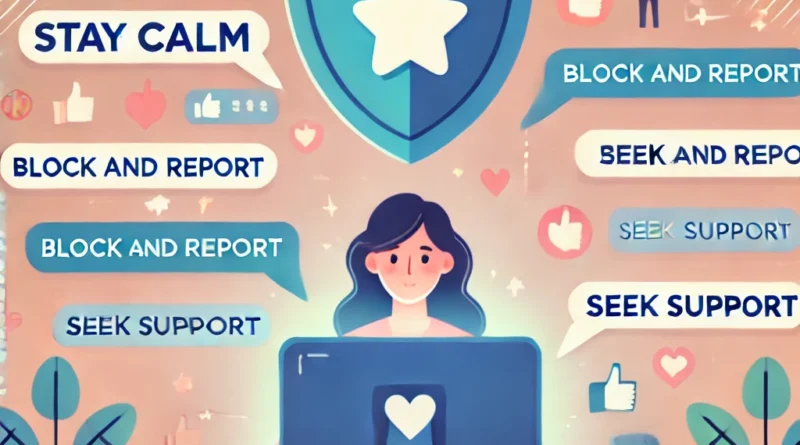Understanding Online Bullying and How to Respond to It Effectively
In the digital age, it’s not uncommon to witness or experience situations where individuals gang up against someone online. This can involve bullying, making assumptions, or unjustly targeting someone based on their appearance, past experiences, or opinions. A recent example involves a person accused of unethical behavior while complaining about similar issues. Such incidents can be complex, but understanding the psychological dynamics and knowing how to respond can help you navigate these situations effectively.
Here’s a guide to understanding such behavior and actionable steps to handle or respond if you find yourself unsure:
1. Why Do People Gang Up Online?
Understanding the psychological factors at play can help decipher the behavior:
Projection
This is when someone unconsciously transfers their own feelings or past experiences onto another person. For example, if someone has faced unethical behavior in the past, they might project their own struggles onto others, accusing them unjustly.
Confirmation Bias
People tend to see what they expect to see. If someone has been affected by unethical practices, they might interpret others’ actions through that lens, even if the behavior isn’t inherently wrong.
Scapegoating
This happens when someone directs blame at another individual or group as a way of coping with their own issues. The accused becomes an easy target to redirect anger or frustration.
Social Comparison
When individuals feel insecure, they might compare themselves to others, often putting others down to feel a sense of superiority or self-righteousness.
2. How to Respond When You’re Unsure
If you witness or become involved in a similar situation online, here are some actionable steps you can take:
Step 1: Pause and Assess
- Take a moment to step back and analyze the situation objectively.
- Ask yourself: Are the accusations based on facts, or could they be influenced by personal biases or past experiences?
- Avoid reacting emotionally or impulsively.
Step 2: Avoid Joining the Mob
- Resist the urge to take sides without fully understanding the situation.
- Contributing to online bullying or mob behavior can escalate the issue and harm innocent parties.
Step 3: Show Empathy
- Consider the possibility that the person making accusations might be projecting their own struggles or insecurities.
- Avoid harsh judgments and offer a calm, empathetic response if you choose to engage.
Step 4: Focus on Facts, Not Assumptions
- Stick to verified information and avoid spreading assumptions or rumors.
- If you’re uncertain about the truth, it’s better to remain neutral or silent.
Step 5: Use Respectful Language
- Even if you disagree, frame your responses in a way that fosters healthy discussion, not hostility.
- Avoid personal attacks or inflammatory language.
Step 6: Report Abusive Behavior
- If the behavior becomes harmful, abusive, or violates platform guidelines, report it to the relevant platform.
- Most social media sites have tools to report bullying or harassment.
Step 7: Encourage Positive Dialogue
- If possible, steer the conversation toward constructive dialogue.
- Offer solutions or alternative viewpoints without being confrontational.
3. How to Protect Yourself Online
If you’re the target of such behavior:
- Document Everything: Take screenshots or save messages in case you need evidence later.
- Block and Report: Use platform tools to block and report abusive users.
- Seek Support: Reach out to friends, family, or online communities for emotional support.
- Consider Professional Help: If the bullying affects your mental health, don’t hesitate to consult a counselor or therapist.
4. Resources for Understanding Online Behavior
To delve deeper into the psychological dynamics of online interactions, consider these books:
- “The Crowd: A Study of the Popular Mind” by Gustave Le Bon
- “The Lucifer Effect: Understanding How Good People Turn Evil” by Philip Zimbardo
- “Emotional Intelligence” by Daniel Goleman
- “So You’ve Been Publicly Shamed” by Jon Ronson
Final Thoughts
Navigating online dynamics can be tricky, especially in situations where individuals gang up on others. By understanding the psychological factors and following these steps, you can respond effectively and foster a more respectful online environment. Remember, empathy and critical thinking are powerful tools to diffuse tension and promote positive interactions.

